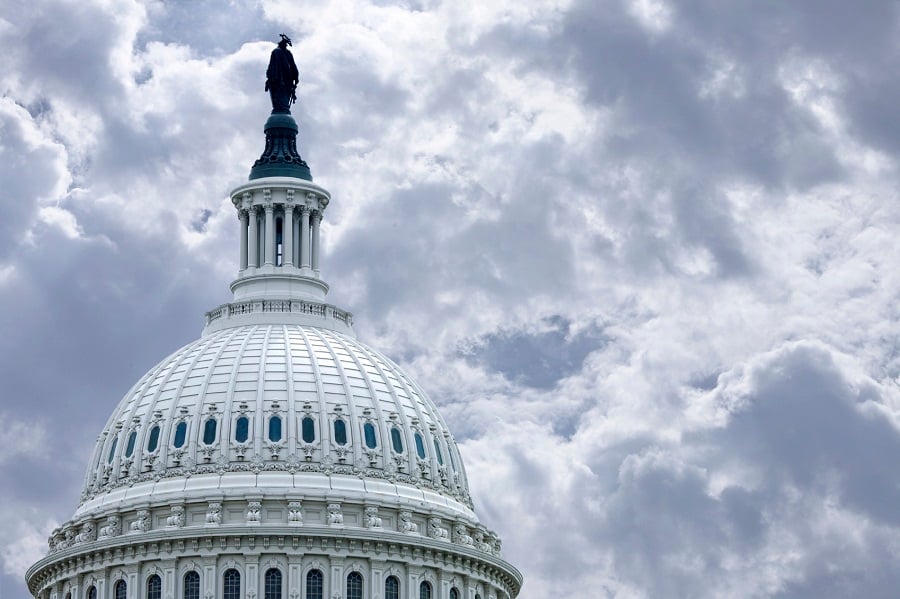

Republican lawmakers who floated legislation last week that would encourage retirement savings investments in private equity and digital currency hope the measure will be included in an economic bill in a lame-duck session of Congress, but the lack of bipartisan support could hold it back.
Sens. Patrick Toomey, R-Pa., and Tim Scott, R-S.C., as well as Rep. Peter Meijer, R-Mich., introduced the Retirement Savings Modernization Act last Thursday. The three-page bill would clarify that company retirement plans can recommend or select alternative investments, including commodities, debt, digital assets, hedge funds, private equity and real estate, without violating their fiduciary duty.
Retirement plans can invest in such alternative assets now but usually stick to public stocks and mutual funds because of concerns about litigation risk. The Department of Labor earlier this year warned retirement plan fiduciaries to “exercise extreme care” when considering investments in cryptocurrency.
“Our legislation will provide the millions of American savers invested in defined contribution plans with the option to enhance their retirement savings through access to the same wide range of alternative assets currently available to savers with defined benefit pension plans,” Toomey said in a statement. “This reform will open the door to higher returns and a more secure retirement for millions of Americans.”
Even though the lawmakers introduced the bill near the end of the congressional session, they hope it can gain traction in a lame-duck session after the election.
The goal is for the bill “to be included in a year-end package,” a Toomey aide wrote in an email. “We are also actively seeking a Democratic co-sponsor.”
If the year-end package they have in mind is the retirement savings legislation known as Secure 2.0, the Democratic backing is paramount. The House overwhelmingly approved the bill in May, and two Senate committees unanimously passed similar legislation.
Any additions to the bill as it makes its way through the legislative process would have to have bipartisan support.
“It’s highly unlikely [to be included in Secure 2.0] as it is late in the process, has not been considered by relevant committees and does not have bipartisan sponsorship in the House or Senate,” Paul Richman, chief government and political affairs officers at the Insured Retirement Institute, wrote in an email.
That sentiment was echoed by a financial industry lobbyist who questioned why Democrats would acquiesce to adding a private-equity provision to Secure 2.0. The lobbyist requested anonymity to discuss the bill.
The American Retirement Association has come out against the bill.
The group “opposes any legislation that undermines [the Employee Retirement Income Security Act’s] fiduciary protections for plans and participants,” ARA CEO Brian Graff said in a statement. “We are concerned based on the current legislative language in this bill that it would have that effect, and we will be discussing those concerns with the bill’s sponsors.”
The IRI, which represents the annuity sector, has not decided whether to support the bill. The GOP authors say they have “broad industry support” that includes the Securities Industry and Financial Markets Association, the Institute for Portfolio Alternatives, the American Securities Association and the CFA Institute.
“We think [the legislation] should go further to clearly state that fiduciaries have a duty to make investment decisions that maximize the pecuniary value of retirement plans on behalf of their beneficiaries,” ASA CEO Chris Iacovella said in a statement.

By listening for what truly matters and where clients want to make a difference, advisors can avoid politics and help build more personal strategies.

JPMorgan and RBC have also welcomed ex-UBS advisors in Texas, while Steward Partners and SpirePoint make new additions in the Sun Belt.

Counsel representing Lisa Cook argued the president's pattern of publicly blasting the Fed calls the foundation for her firing into question.

The two firms violated the Advisers Act and Reg BI by making misleading statements and failing to disclose conflicts to retail and retirement plan investors, according to the regulator.

Elsewhere, two breakaway teams from Morgan Stanley and Merrill unite to form a $2 billion RIA, while a Texas-based independent merges with a Bay Area advisory practice.
Orion's Tom Wilson on delivering coordinated, high-touch service in a world where returns alone no longer set you apart.
Barely a decade old, registered index-linked annuities have quickly surged in popularity, thanks to their unique blend of protection and growth potential—an appealing option for investors looking to chart a steadier course through today's choppy market waters, says Myles Lambert, Brighthouse Financial.
